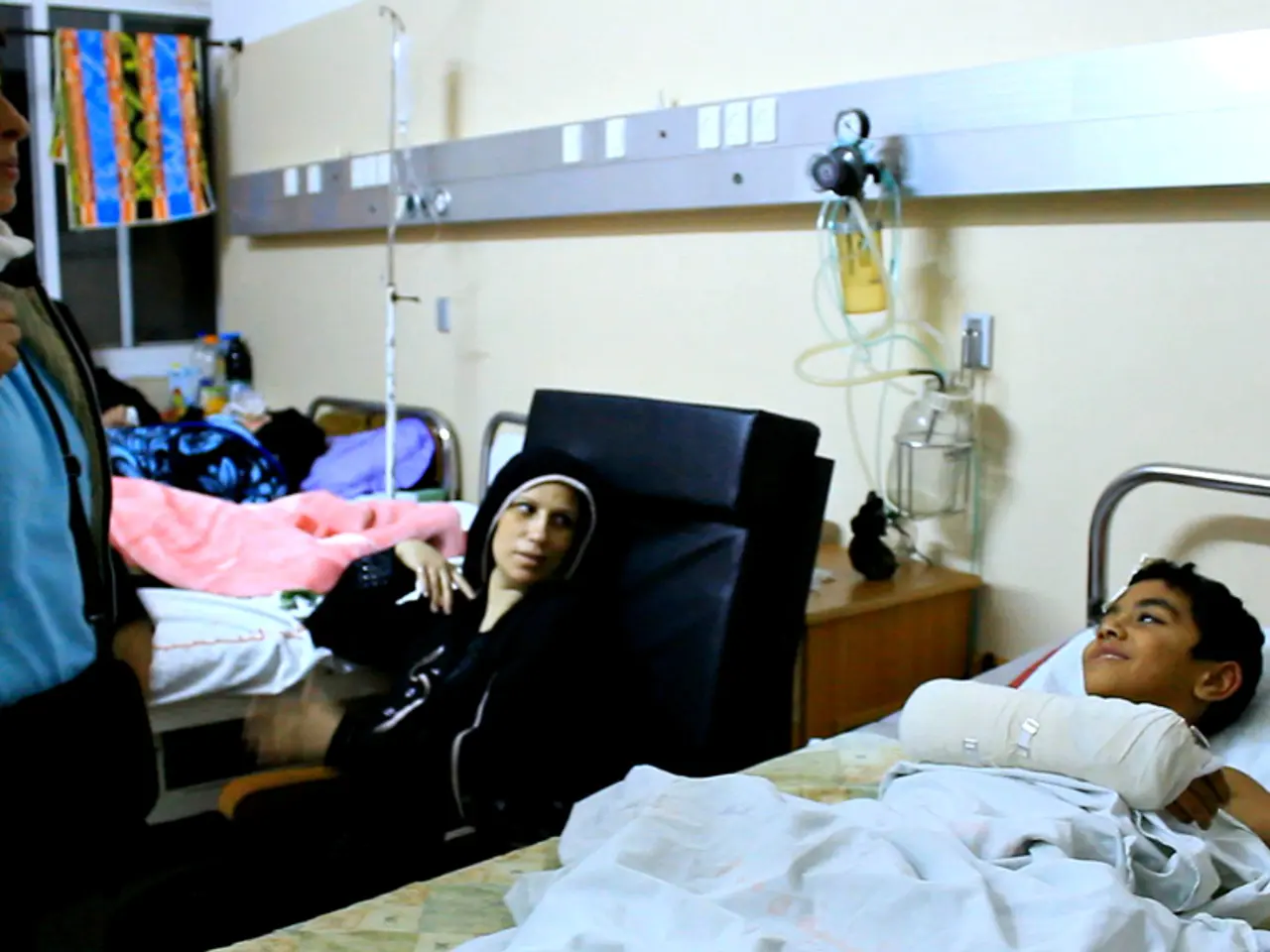Effect of stress on cancer patients' immune system functioning
Chronic stress, a common issue among cancer patients, significantly affects the immune system's performance, compromising the body's ability to fight infections and diseases, including cancer.
Chronic psychological stress, such as depression and anxiety, leads to elevated stress hormones like glucocorticoids and catecholamines. These hormones suppress immune responses critical for tumor surveillance, allowing cancer cells to evade death [5].
Stress induces systemic immunosuppression by impairing the function of immune cells that would otherwise attack tumors, while simultaneously promoting inflammation that can facilitate tumor progression and resistance to therapies. For instance, stress-driven sympathetic nervous system activation accelerates breast and other peripheral cancers [2].
Moreover, chronic stress and emotional disorders in patients are strongly linked with poorer cancer outcomes, including higher rates of disease recurrence and mortality [1]. This is partly due to stress impairing anti-tumor immunity and reducing responses to immune checkpoint inhibitors (ICIs), a form of immunotherapy increasingly used in cancer treatment [1].
From a cancer management perspective, it is crucial to: - Implement routine screening and intervention for psychological stress to improve overall prognosis and therapeutic response [1]. - Embrace integrative approaches targeting stress hormone balance and immune support before and during treatment, such as adaptogenic therapies or nutritional interventions, to enhance immune resilience and recovery [3].
Effective stress-reduction techniques for cancer patients include mindfulness and meditation, which help them focus on the present moment, reducing anxiety. Building a strong support network of family, friends, and healthcare providers also helps patients feel less isolated. Adequate sleep is essential for immune system recovery and stress reduction.
Yoga, a form of exercise that interlaces activities with venting techniques, can help reduce stress levels. Acupuncture can help minimize stress and improve treatment side effects. Breathing exercises can help calm the nervous system and lower cortisol levels, while massage therapy stimulates the body's relaxation response and diminishes muscle tension.
Cognitive-Behavioral Therapy (CBT) is beneficial for helping patients reframe negative thoughts and adopt healthier coping mechanisms. Regular physical activity, such as walking or yoga, can lower stress levels and enhance immunity. A diet rich in fruits, vegetables, and whole grains supports immune function.
Joining therapy groups or support networks provides emotional comfort and shared experiences. Chronic stress has been associated with faster tumor growth, reduced treatment efficacy, and increased risk of metastasis in cancer patients. Addressing these psychosocial stressors is essential for supporting the immune system and overall well-being of cancer patients.
In conclusion, chronic stress contributes to a tumor-favorable immune environment by dampening anti-cancer immune functions and increasing inflammation. This stresses the importance of addressing psychological stress as part of comprehensive cancer care to optimize treatment efficacy and patient outcomes [1][5].
- Chronic stress, due to its impact on the immune system, can compromise the body's ability to fight not just cancer, but also other infections and diseases.
- Elevated stress hormones like glucocorticoids and catecholamines, caused by chronic psychological stress, suppress immune responses vital for tumor surveillance, allowing cancer cells to evade death.
- Stress can induce systemic immunosuppression, impairing immune cells' function that would otherwise attack tumors and promoting inflammation that can facilitate tumor progression and resistance to therapies.
- Addressing psychological stress is crucial in cancer management to improve overall prognosis and therapeutic response.
- Mindfulness and meditation, as stress-reduction techniques, can help cancer patients focus on the present moment, reducing anxiety.
- Yoga, a form of exercise that interlaces activities with venting techniques, can help reduce stress levels in cancer patients.
- A diet rich in fruits, vegetables, and whole grains, along with regular physical activity and exercise, can support immune function, helping cancer patients enhance their immunity and well-being.




